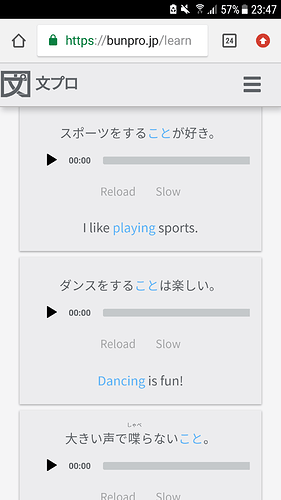Finally got round to buying my sub after the trial ran out! 
Today I took the time to zero out my reviews, even though quite some things ended up in the ghost pile. That’s okay.
I’m going through CureDolly’s “Japanese from scratch” playlist from the start again, and I’m adding links to the BunPro notes of the relevant section. Not a link to the overall video, but the exact time stamp where she talks about that grammar item, so I don’t have to look for anything when I just want to hear her explanation again in the future.
It’s not as boring as I feared, rewatching the grammar videos I already saw. It’s kind of nice to be refreshing things after becoming more familiar with the grammar points for a while.
Currently, I plan not to add new BunPro lessons right away. First I’ll focus on making sure I feel comfortable with the grammar already in my queue.
Haven’t done any reading yet today, but I hope to still get that done. My wife will be out most of the evening to take the final tests in her Dutch language course. I’ll be working hard on my Japanese as a sign of solidarity. 




 Making my head hurts
Making my head hurts






 Doubt I’ll be doing much grammar this weekend, so it’s review maintenance until fresh back into everything on Monday.
Doubt I’ll be doing much grammar this weekend, so it’s review maintenance until fresh back into everything on Monday.